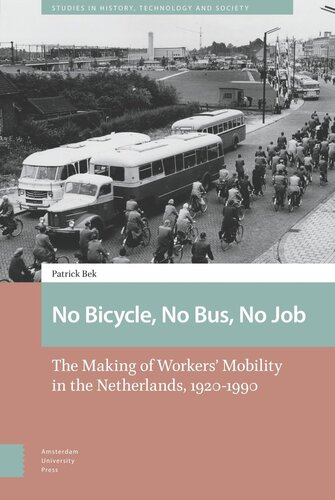

Most ebook files are in PDF format, so you can easily read them using various software such as Foxit Reader or directly on the Google Chrome browser.
Some ebook files are released by publishers in other formats such as .awz, .mobi, .epub, .fb2, etc. You may need to install specific software to read these formats on mobile/PC, such as Calibre.
Please read the tutorial at this link: https://ebookbell.com/faq
We offer FREE conversion to the popular formats you request; however, this may take some time. Therefore, right after payment, please email us, and we will try to provide the service as quickly as possible.
For some exceptional file formats or broken links (if any), please refrain from opening any disputes. Instead, email us first, and we will try to assist within a maximum of 6 hours.
EbookBell Team

5.0
90 reviewsFor working people, the expenses of going to their jobs, in terms of time and cost, are a crucial aspect of daily life. As economic conditions and mobility systems changed in the twentieth century, this aspect of workers’ lives underwent significant transformations. Historians have only begun to unravel how power and social inequality informed the governance of everyday mobility. Amid the turmoil of twentieth century economic booms and busts, war and austerity, and processes of (car-centered) suburbanization, how did low-income, rural, and migrant workers get to work in the Netherlands? Governing Workers’ Mobility explores the political choices underlying workers’ daily commute. Using archival collections, it uncovers the shaping role of workers and employers, detailing their understanding and response to past mobility barriers. It discusses workers’ discovery of bicycles, buses, mopeds, and cars; highlights company efforts to support and control employees’ mobility; and shows that today’s predicaments have a longer history.